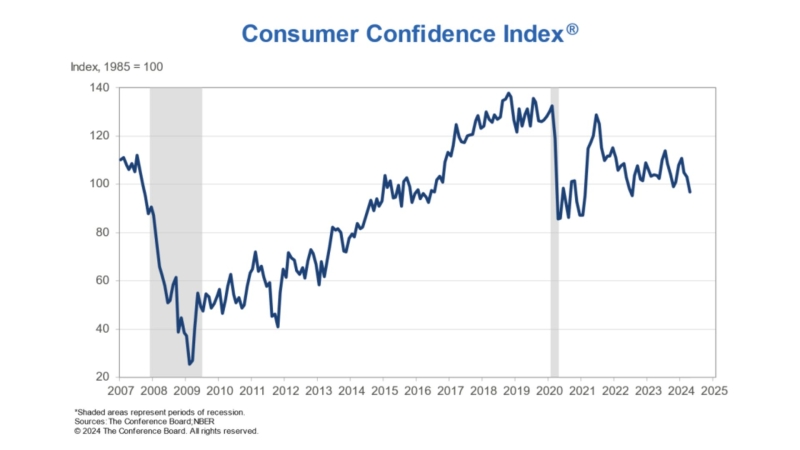Advertisement
Mortgage branching in a changing industry

Mortgage retail branch opportunities are sprouting up like mushrooms after heavy rains. Everyone, from independent mortgage brokers to federally-chartered banks to wholesale lenders, wants to get in on the action. These types of arrangements are often referred to by different names, branch partnerships or affiliate branches, being two of the more popular terms. A few companies are still referring to themselves as a “net branch,” now considered a dirty word thanks to some poorly-operated companies that have given the term a negative meaning. Perhaps there are so many terms currently in use because no new universal term has yet to be coined.
A mortgage branch company is not an easy business to manage or operate. To some, opening a branch sounds like a quick way to get rich … hire some loan officers, make a few hundred dollars off each loan or a flat fee per month and retire in a couple of years. If only it were so easy. There are going to be some tough lessons learned in the not-too-distant future.
Regulations abound
Both federal and state regulators have made, and are likely to continue making, drastic changes to the industry. These changes are not going to make your job any easier. Staying abreast of these changes is a monumental task and requires a heavy emphasis on compliance; something a good branch company should always do for you. To make matters even more challenging, state laws often contradict federal laws. The U.S. Department of Housing & Urban Development (HUD) permits a non-traditional branch office to be, “located in a non-commercial space, but it must have adequate office space and must comply with the local government use requirements” (HUD Handbook 4060.1, Chapter 2-11.C.1.). While HUD may permit a home-based branch office, several states require a commercial location.
Have you ever read a correspondent or broker agreement?
All of the liability is placed on the company who enters into the agreement, not the loan officer who originates the loan. These agreements have become much stricter in recent years, with some even attempting to pass all of the liability onto the originating lender. The representation and warranty clauses often require guarantees beyond loan officers or the originating lender’s control. The cost for indemnity or loan repurchase can add up to very sizeable amounts quickly. Couple this with loans that must be sold, scratch and dent for pennies on the dollar, because they failed to meet a particular guideline or because a borrower’s circumstances change after funding, and you have a financial exposure that some could not handle.
Staffing the branch
An often overlooked component of a successful mortgage branch company is the commitment and passion of the corporate staff, which is critical to assist the branches. The dynamics between the corporate staff and loan officers is uniquely personal. Excellent customer service requires specialized professionals with a broad understanding of the mortgage business. Branches depend on this vital link to the corporate office in order to succeed. When the branches succeed, the company succeeds. The staffing and infrastructure requirements for a branch company are extensive. There are plenty of loan origination software systems and back-office software systems to handle underwriting, secondary, closing, funding and other tasks, but systems that manage employees, licenses and the unique compensation model in the branching world, are extremely limited.
Everyone lacks experience at one time in their life or another
Right now, many of the companies offering branch arrangements are just getting their feet wet with the business model. Sure, they may have plenty of experience in mortgage lending, perhaps as a wholesale lender, but wholesale lending is nothing like a retail mortgage branch company. An independent mortgage banker or broker who is looking to expand may have experience with a handful of loan officers at their location, but what happens when some of the control is lost to an offsite office? Federal banking agency-regulated institutions offer the benefit of skipping the Nationwide Mortgage Licensing System (NMLS) test and required education, but they bring about stricter oversight from their own set of regulators and will mimic more of a traditional employer/employee relationship, which can be contradictory to the loan originator entrepreneurial spirit. The federal banking agency-regulated institutions are also attracting those who can not pass the NMLS-required background check or test, potentially drawing a crowd that may be questioned.
Do your research
When looking at mortgage branch companies, there is a lot of research that needs to be done. Loan officers are being bombarded with opportunities to join a branch company. Solicitations are coming from wholesale account executives that are being required to, not only establish and maintain relationships with mortgage brokers and loans officers, but to now actually recruit and manage them as employees. E-mail blasts and Web sites claim misleading information about production, capabilities and costs. The decision to join a branch company should be a well thought out business decision; it should not be an emotional decision or one that was a result of a great sales pitch. Take the time to do your homework now and you will be rewarded later.
Evaluate experience
When interviewing branch companies, ask them how long they have operated branch offices and how many offices they currently have. Experience counts, unless you want to be a guinea pig. This information can be validated through HUD’s Single-Family Neighborhood Watch Early Warning System (NW). If you do not have access to this information, ask the branch company to provide a printout for you. Not only will NW list all of the company’s active branch locations and the date each was authorized, the system is the only reliable and accurate source for production data and loan performance. Like borrowers, branch companies often speak higher of themselves than what the numbers may show. NW reports the most recent 24-month’s production data for all Federal Housing Administration (FHA)-insured loans, as well as the compare ratio, which tracks defaults to that of the national average or other specified geographic areas. There are two reasons why this is very important: the first is to validate a company’s production. If they claim to be the world’s largest branch company or that they pay out over a million dollars a day in commissions, yet the data only reports 1,200 FHA loans in the past 24 months, you know something may be a little fishy. Secondly, and most importantly, is the compare ratio. A compare ratio of 100 percent means the company’s loans default at the exact same rate as the national average. At 200 percent, the defaults double national average and the game is about over; the days are numbered before HUD revokes approval.
Ask for the corporate contact list now, not after you have been hired
Look for a company that is staffed accordingly for its size and also look at job titles. The corporate office should not only include common back office positions such as, underwriters and closers, but should also include IT, compliance, payroll and support staff who are dedicated to supporting the branch offices with anything and everything, not just underwriting or closing coordinators in disguise as support.
Banker or broker?
The choice should not be made now, but on each and every loan. No company can be everything to every borrower on every loan. We all want the very best pricing, instant service, and every program available, but the reality is no company can or has ever offered this. Is there a wholesale lender you have worked with that can do this? No. Look for a company that offers a good balance among pricing, products and service, but keep your options open to broker loans too. “First right of refusal” is not a policy put in place for your benefit. A branch company that allows you to choose on each and every loan, whether you want to bank it in-house or broker it to their expansive lender list, is forced to compete for your business. Loan officers want to close loans quickly, close all of the loans they come across, and get paid well for their work. Keeping your options open to both bank and broker your loans is the key to maximizing your success.
The right branch company will allow you to originate more loans and put more money in your pocket. By off-loading all of the back office functions and associated costs and liability, your time is freed up to work on the tasks that generate income for you—originating and closing loans and/or managing a team of loan officers. In order for this to work to your benefit, all of the other elements must be in place. You must align yourself with a branch company that has the experience in operating branch offices, a company that has been around and will be here in the future, so your paychecks are good and on time.
Mark Buskuhl is chief operating officer of Texas-based Southwest Funding LP, one of the longest operating and most successful mortgage branch providers. He may be reached by phone at (877)-878-8989, e-mail [email protected] or visit www.branchsouthwest.com.
About the author





